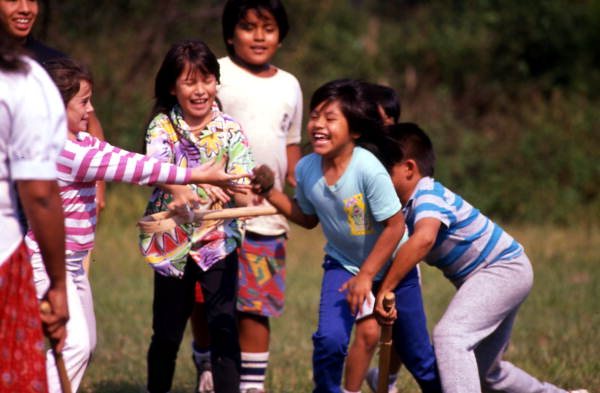Education
Culture
Society
Edward Hessler
I just learned that Iona Opie died. She was 94 years old.
She and her husband, Peter (he died in 1982), were unique anthropologists/folklorists of childhood games and play. Neither of them were academics; they were merely curious about childhood games and that passion directed their lives.
According to an obituary in the Guardian, she and her husband were "exiled by the London blitz to Bedfordshire in 1943, and there the couple walked by a field of corn. Iona, who was pregnant, picked up a bug and recited 'Ladybird, ladybird, fly away home / Your house is on fire and your children all gone.' It flew and they were 'left wondering about this rhyme – what did it mean? Where did it come from? Who wrote it?'”
These questions led them to a search of local resources where they found nothing. Rather than dropping their wonder, the two of them started a lifelong research and publishing program. It was Iona Opie's conviction that childhood rhymes were "uniquely British," and that "we're nourished with nonsense, and it does us a lot of good."

She and her husband were perfectly matched for this kind of work and the kind of life it demanded. They were often referred to simply as 'The Opies.' "I did it all the time," Peter Opie wrote; Iona Opie did the research. They were narrowly focused, choosing to live simply and isolated from friends and a social life. Their method was careful observation and recording as children played games in streets, on sidewalks and fields without adult supervision. Ultimately, they made categories of what they observed.
I was bowled over when I discovered two of their books, even developing a small file on them and some of their findings which I copied onto three-hole punched notebook paper (now recycled).
The two books, which I strongly recommend are: The Lore and Language of Schoolchildren and Children's Games in Street and Playground: Hunting, Racing, Duelling, Exerting, Daring, Guessing, Acting, Pretending.
You can take a peek inside "Lore and Language." You just have to read the opening to the introduction. There you will find a report from a Paris schools inspector (1880) who heard a troubling chant in the classroom of teacher Stephan Mallarme who wasn't troubled but intrigued. It makes one want to repeat it aloud.
The book includes a distribution map of their field work. Here are a few of the categories: just for fun, wit and repartee, riddles, parody, topical rhymes, ridicules and epithets, jeers and epithets, pranks, rivalry, etc.

Here is the obituary from the Guardian article mentioned above, two from U.S. papers, the New York Times and the Washington Post, and this remembrance from the British Library, where the Opie papers are housed. The latter includes a picture of the two of them in the field.
I'll be ever grateful for their work and the recording of a national treasure of nonsense.

 CGEE Student Voice
CGEE Student Voice
No comments:
Post a Comment